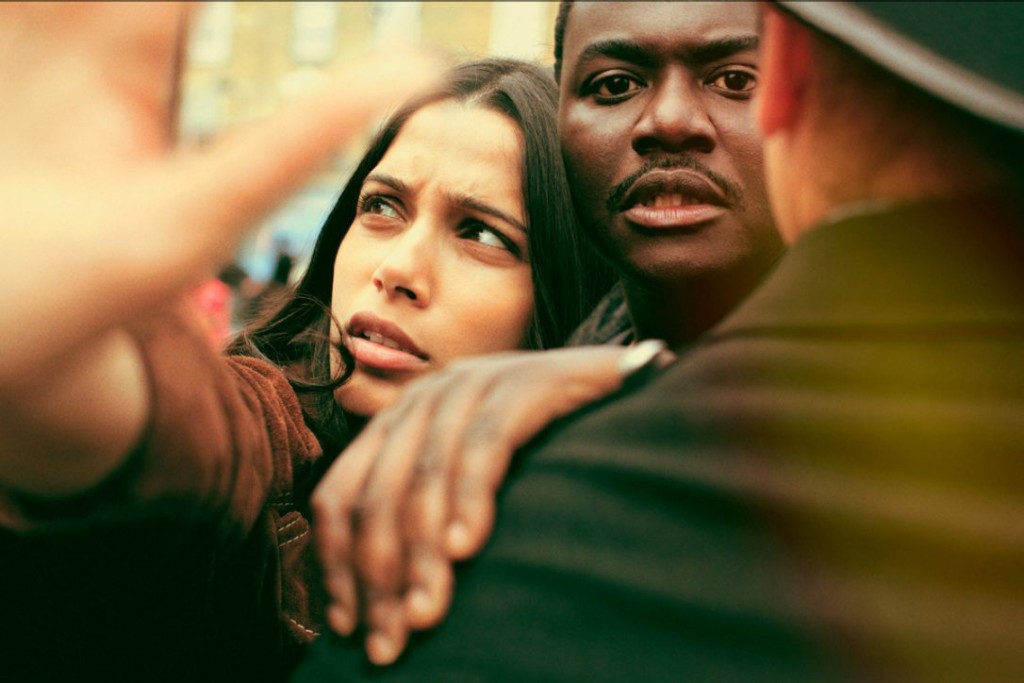
John Ridley is always a welcome addition to any TCA press tour gathering. The American Crime showrunner never fails to express how much he values the opportunity to speak before TV beat writers. It never comes across ass-kissy, although that’s always welcome, too.
Time to return the favour. Ridley is the John Landgraf of executive producers. He is smart, on top of his game and always delivers in a scrum.
Ridley won an Oscar for his “12 Years a Slave” screenplay. Beyond that, the 51-year-old Wisconsin native’s accomplishments are varied and impressive. He performed stand-up after college, appearing on both The Tonight Show and Letterman. He wrote for several TV comedies, including Martin, The Fresh Prince of Bel-Air and The John Larroquette Show.
I hope at some point to talk to him about Larroquette. That ’90s series was wildly uneven, but at times, brilliant.
Ridley later turned his writing talents to drama, earning a story credit on one of my favourite George Clooney films, “Three Kings.” The NBC series Third Watch followed, as did several novels.
advertisement
He’s been developing a Marvel Comics project for ABC for a while now. Back in January, at the winter TCA, he said the series is “still cooking,. It’s not going away. Hopefully we’ll get it exactly right and we’ll put it in front of people.”
Lately, his take on race has been particularly enlightening. This was especially true in January when he was before critics promoting Guerrilla, which just premiered on Showtime in the States and CraveTV in Canada. The six-part miniseries is set in London in 1971. It stars Freida Pinto (Slumdog Millionaire) and British actor Babou Ceesay (Rogue One: A Star Wars Story) as Jas and Marcus, two idealistic young lovers fighting against deep-rooted racism and prejudice.
Their organized resistance movement runs smack up against the “Black Power Desk,” a unit that really was set up by Scotland Yard to combat racial unrest in the late ’60s/early ’70s.
Ridley was asked if, while researching the project, he found any difference between racism in America and racism in The UK. “When we get down to it, at the most fundamental level, there is no difference,” he said. “When people are being marginalized or disenfranchised, it really doesn’t matter if it’s about race, religion, creed, or color. I will say that there was a real education for me personally.”
Read more about Guerrilla here at thestar.ca at this feature I wrote for The Canadian Press.





